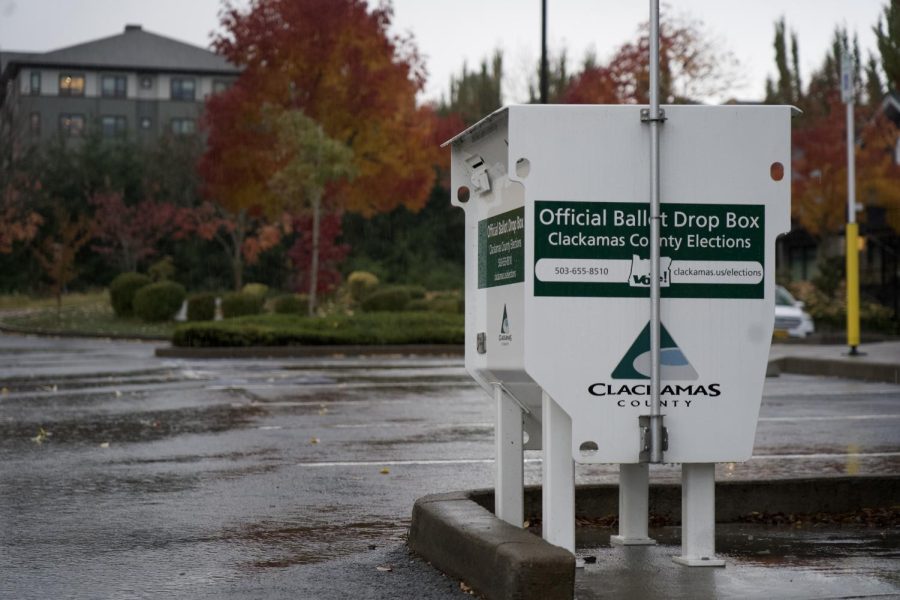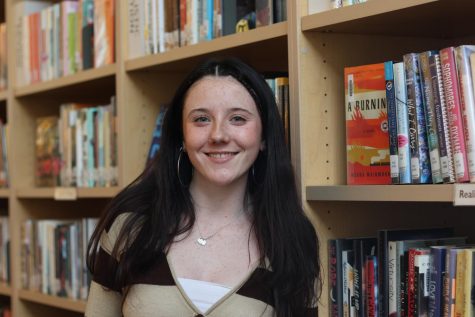What To Know About Oregon’s Upcoming Election
Ballot drop-off boxes can be found throughout the state, since Oregon does not have in-person voting.
November 5, 2022
Elections for Oregon’s new governor will take place on Tuesday, Nov. 8. For some students, this election will be their first time exercising their right to vote and taking control of their influence on local government.
Lots of conversations have been taking place in social studies classrooms about the governor candidates, their strategies, and where they stand on political issues, social studies teacher Mr. Peter Snow said.
There are three candidates running for governor: Independent Betsy Johnson, Republican Christine Drazan, and Democrat Tina Kotek.
All three candidates have differing views on some of the largest current issues right now — houselessness, abortion, the economy, guns, healthcare, climate change, crime, and community safety.
The Falconer spoke to a few La Salle students and staff who shared a variety of perspectives on the upcoming election. Senior Charlie Buckman hopes for a governor who is “someone that embodies integrity, respect, and wants the safety of the people.”
For senior Maia Gutmann, “I think that because Oregon has such a Democratic population, it’s really important that our governor reflects those beliefs of what I think is at least the majority, if not the overwhelming majority.”
Since Oregon is such a historically Democratic state that has not been governed by a Republican in 35 years, it is striking that Drazan has a small lead on Kotek in several current polls.
The race is increasingly tight — mainly between Kotek and Drazan — and this year’s ballot could have impacts aside from the governor, with new measures as well. This tight race is in part a result of Johnson’s third-party campaign, which has driven some votes away from the other two candidates.
“It could mean a lot of things,” Mr. Snow said. “And I don’t mean just about who’s in charge of the governor’s position. One thing that I’m curious about is what we’re seeing at the local level in Portland, is a movement on how to change elections to work for more people.”
Also on the ballot this year are Measure 114, which strengthens restrictions on firearms and Measure 26-232, which alters the current voting system.
To some Oregon residents and voters, this year’s election feels different than years past. “It seems like they are trying to nationalize the governor’s race,” Mr. Snow said. “It’s less about Oregon-specific issues. I’m sure they have opinions on those issues, but what money is being spent on seems to be kind of these national issues.” Mr. Snow, a self-described “political junkie,” said that he has noticed this focus on national issues in local elections as not exclusively an Oregon trend, but rather a national movement.
Although this election is a big deal, with a close race among political parties, “unless [the state legislature] is all one political party, I see kind of gridlock as what’s going to happen unless we can break the national trend of being able to work together,” Mr. Snow said.
According to Mr. Snow, whichever party’s candidate wins could have a ripple effect in the future. “If you have someone new in the governor’s mansion and they experience some success, that might lead to more success of that same party,” Mr. Snow said.
In terms of what the next four years look like, some are hoping for transformation. “I feel like with Governor Brown we didn’t really see a lot of change, so I feel changing that is probably the most important,” Buckman said.
For Gutmann, “I just hope that we can maintain really liberal beliefs and views and keep fighting for those who are getting their rights stripped away… because of the conservative actions being taken elsewhere in the country.”
Seniors who will be 18 by election day and registered to vote before the deadline will be able to cast ballots.
Oregon’s voting deadline is Nov. 8 by 8 p.m., and ballots can be dropped off at a number of sites throughout the state.





